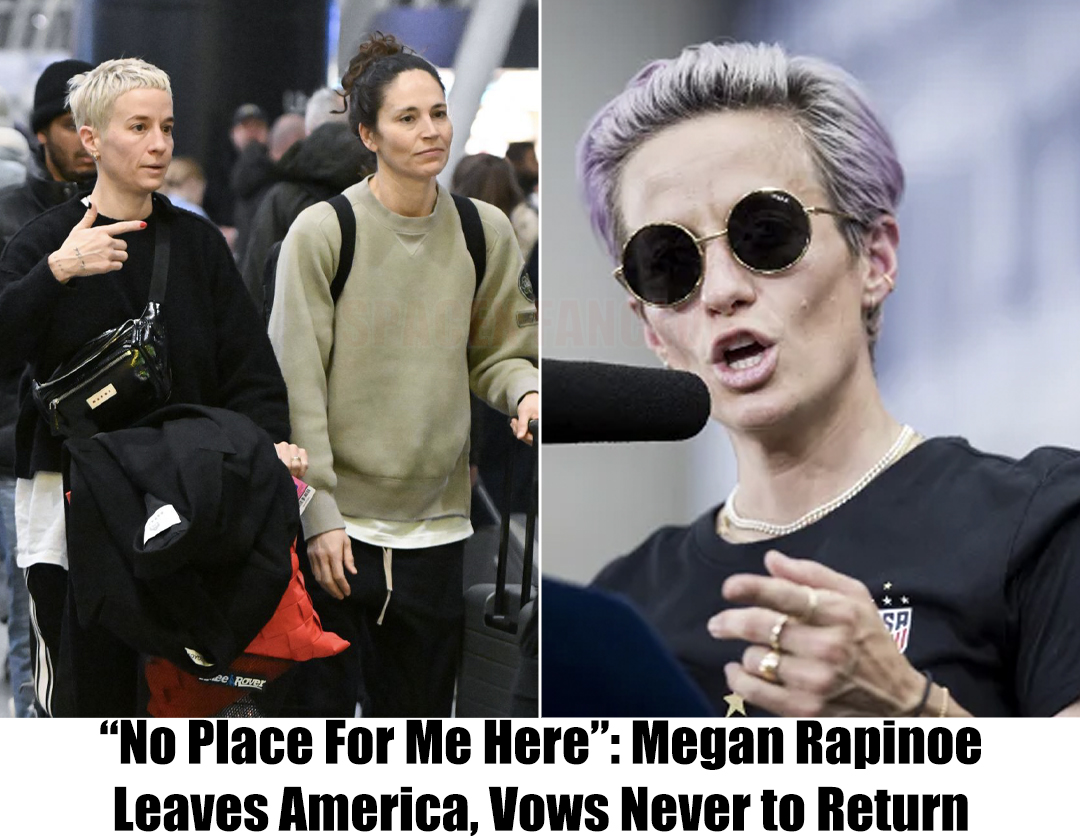“No Place For Me Here”: Megan Rapinoe Leaves America, Vows Never to Return

In a move that has reverberated across the sports and social justice landscape, Megan Rapinoe, the iconic U.S. Women’s National Soccer Team (USWNT) player, has made a resolute decision: she is leaving America and vowing never to return. This unprecedented announcement has sparked a myriad of reactions, with fans, critics, and the general public attempting to comprehend the implications of Rapinoe’s departure.
Megan Rapinoe’s journey from a young girl playing soccer in Redding, California, to an international soccer sensation and a fervent advocate for social justice causes has been nothing short of extraordinary. Her skill on the field, marked by a lethal left foot and unparalleled playmaking abilities, catapulted her to the forefront of women’s soccer. But Rapinoe’s impact extends far beyond the pitch.
As an openly gay athlete, Rapinoe became a beacon of representation for the LGBTQ+ community. Her courage in taking a knee during the national anthem in solidarity with Colin Kaepernick’s protest against racial injustice positioned her as a vocal advocate for change. However, it’s precisely this unwavering commitment to her beliefs that has made her a polarizing figure.
The decision to leave the United States did not happen in isolation. Recent events, particularly an incident at Guy Fieri’s restaurant, played a pivotal role in what appears to be a tipping point for Rapinoe. The restaurant, typically known for its welcoming atmosphere and love of good food, became an unexpected battleground.
Megan Rapinoe’s activism, though celebrated by many, has also made her a target for criticism. Her calls for equal pay, LGBTQ+ rights, and racial justice have been met with fervent support, but they’ve also generated opposition from those who view her stances as too political for a sports figure. The incident at Guy Fieri’s restaurant is emblematic of the broader challenges faced by high-profile individuals who use their platform to advocate for social change.
Rapinoe’s departure follows a trajectory of increasing public backlash against athletes engaging in activism. The criticism isn’t confined to her sporting endeavors; it extends into her personal life. Her relationship with basketball star Sue Bird, celebrated by many as a positive representation of LGBTQ+ love, has also faced scrutiny and commentary, underscoring the intersectionality of her public image.
Megan Rapinoe’s decision to leave America is layered with personal and political implications. In her public statement, she alludes to feeling like a “stranger in her own home.” This sentiment captures the profound impact that societal divisions, public backlash, and the incident at the restaurant have had on her sense of belonging.
Part of Rapinoe’s identity is intricately linked with her role as a public figure and activist. Her departure raises questions about the toll that public scrutiny and the increasingly polarized political climate can take on individuals who choose to use their platform for advocacy. It also highlights the complex relationship between personal identity, patriotism, and dissent.




